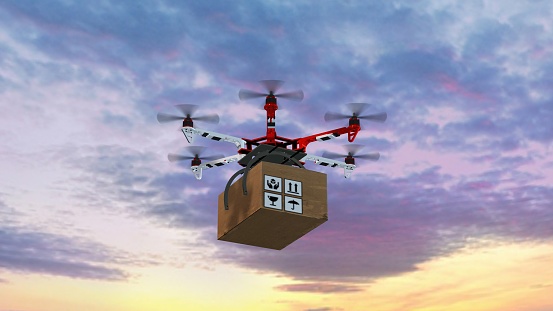 Let’s explore the business risk exposure from drones (UAS). While the military and hobbyists have been using unmanned aerial systems (UAS), better known as drones, for some time now, businesses are just starting to adapt the technology for their own uses. UAS are creating new opportunities—and new risks—for businesses to evaluate, and regulators and insurance carriers are scrambling to keep pace.
Let’s explore the business risk exposure from drones (UAS). While the military and hobbyists have been using unmanned aerial systems (UAS), better known as drones, for some time now, businesses are just starting to adapt the technology for their own uses. UAS are creating new opportunities—and new risks—for businesses to evaluate, and regulators and insurance carriers are scrambling to keep pace.
Unmanned aerial drones (UAS) are a new type of aircraft that has broad commercial and personal uses. UAS can be used to market and inspect buildings and construction sites, deliver materials or fly around as simple, recreational products.
Download Printable PDF Article>>>
Risk Exposure from Drones #1 – REGULATION
The FAA currently considers UAS to be in the same category as manned aircraft, and the agency has released some very comprehensive rules on the commercial use of drones. UAS that are used only for recreation are still considered aircraft, and most of them must be registered with the FAA. Because the FAA currently considers UAS to be in the same category as manned aircraft, any attempt to damage or destroy one can result in federal penalties—up to 20 years in prison and $25,000 in fines.
Risk Exposure from Drones #2 – PHYSICAL LOSS: BEYOND THE AIRCRAFT
With UAS, it’s often the loss of the payload—not the aircraft itself—that can be the most costly. One of the most widespread applications to date has been in unmanned aerial photography. Businesses in real estate, agriculture, filmmaking and insurance all have interests in surveying and photographing land, and the cameras used to do so can get expensive. Because of the increasing affordability of drones, the payload often has a higher intrinsic value than the aircraft itself. Additionally, cameras and other payloads are usually slung below the aircraft, meaning that in the event of a hard or emergency landing, damage to the payload is almost certain.
Risk Exposure from Drones #3 – CASUALTY AND LIABILITY
As with conventional aircraft, a UAS crash could mean a hefty casualty claim. While the crash rate is actually relatively low with conventional aircraft, UAS are not subject to the tight maintenance requirements or the stringent operator regulations that make conventional commercial aircraft crashes so rare. Businesses should make sure they are adequately covered in the event of property damage or injury to a third party.
Risk Exposure from Drones #4 – BROAD USE
Another benefit that could become a potential liability is the flexibility of the technology. The same UAS that photographs a parcel of land could be used to survey a hazardous chemical spill. This kind of flexibility offers a broad number of business opportunities, but each new opportunity brings its own exposures. Businesses will have to think through how they plan on using their UAS in order to make sure that their FAA authorization
and their insurance cover each arena of commercial use.
Risk Exposure from Drones #5 – LIABILITY FOR PRIVACY
Privacy represents one of the largest exposures with regard to drones. A highly maneuverable technology that gives remotely operated cameras access to virtually any location is bound to result in claims of privacy breach. What’s unclear, however, is how both the legal system and insurers plan to address these new exposures.
Currently, carriers exclude all privacy-related claims, but the increased exposure means that there’s a potential market for such protection. However, without some kind of precedent, it’s unclear how, if at all, the insurance industry will respond.
Risk Exposure from Drones #6 – CYBER LIABILITY
As with all new technology, UAS create new opportunities and risks for businesses. Perhaps the greatest potential liability comes from the cyber risks posed by UAS. As technology advances, UAS will be able to remotely hack into computer systems and steal data.
FOR MORE INFORMATION:

David Leff
Account Executive
The Barclay Group
Phone: 856-829-1594, x1216
Email: dleff@barclayinsurance.com


